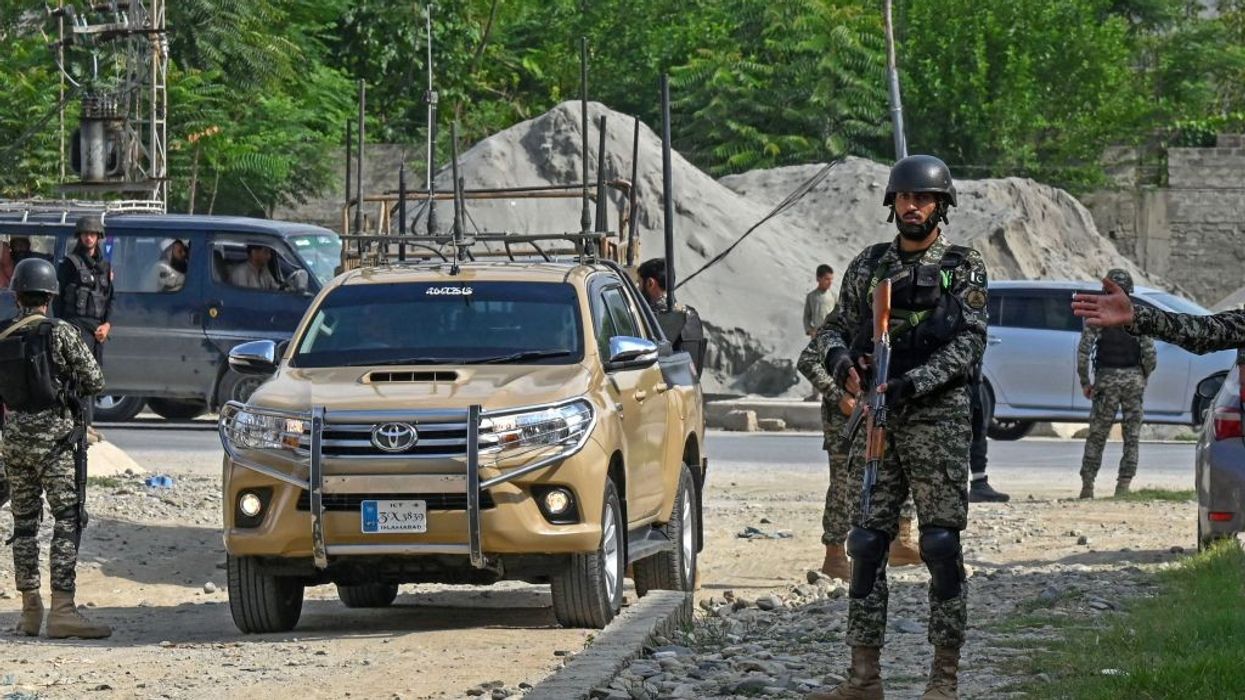DAESH on Monday (31) claimed responsibility for the suicide bombing of a political rally in northwest Pakistan as the death toll from the attack rose to 45.
The bomber struck at a gathering on Sunday (30) of the conservative Jamiat Ulema Islam-Fazl (JUI-F) party, which is known for its links to hardline Islamists but which condemns militants seeking to overthrow the Pakistani government.
The attack in the Bajaur district of northwest Pakistan, near the border with Afghanistan, compounded security concerns in the runup to a national election in November.
The hardline militant group Daesh or Islamic State, claimed responsibility for the bombing, issuing a statement on its Telegram channel on Monday.
"The attack comes in the natural context of the ongoing war waged by the Islamic State against 'democracy' as a regime hostile to true Islam and in conflict with its divine law," the group's Amaq agency said on Telegram.
An official at a state-run rescue agency, Bilal Faizi, said the death toll had risen to 45. Of more than 130 wounded people, 61 were under treatment, government health adviser Riaz Anwar said.
Prime minister Shehbaz Sharif denounced the blast as an attack on the democratic process. Prospects for the election have already been clouded by months of rivalry between main parties and accusations of military involvement in civilian politics, which the military denies.
The government's tenure ends in the first half of August, after which elections are to be held before early November, the run-up to which is usually packed with political rallies and campaigning.
"A justification for postponing the election can strengthen if a series of such attacks continue to happen," Pakistan's former counter-terrorism chief Khawaja Khalid Farooq said.
"Such targeted attacks may affect the performance and electioneering campaign of affected political parties."
Pakistan has seen a resurgence of attacks by Islamist militants since last year when a ceasefire between the Pakistani Taliban, the Tehreek-e-Taliban Pakistan (TTP) and the government broke down.
A mosque bombing claimed by a TTP splinter group in Peshawar killed more than 100 people in January. Nevertheless, Sunday's attack was the deadliest to target a political rally since an election campaign in 2018.
While the TTP and associated groups have been behind most of the attacks in recent months, the group distanced itself from Sunday's attack, with a spokesman condemning it.
Compared to the TTP, attacks of this scale by Daesh are rarer in Pakistan given its limited presence. A local affiliate of the group, which first rose in Iraq, has remained more active in neighbouring Afghanistan. Its last major attack in Pakistan was on a mosque in 2022.
Another new militant group, the Tehreek-e-Jihad Pakistan, about which little is known, has also emerged in recent months, and has carried out a string of attacks in the country, killing 12 soldiers at a military base earlier this month.
The JUI and its chief Maulana Fazl-ur-Rehman have been attacked in the past over their opposition to Pakistani Islamist militants, whose armed campaign against the state they say does not constitute a legitimate Jihad - a fight against opponents of Islam. The party nevertheless supports the Taliban movement in Afghanistan.
(Reuters)
Daesh claims it was behind Pakistan blast
Analysts say the attack compounds security concerns for national elections due by November




